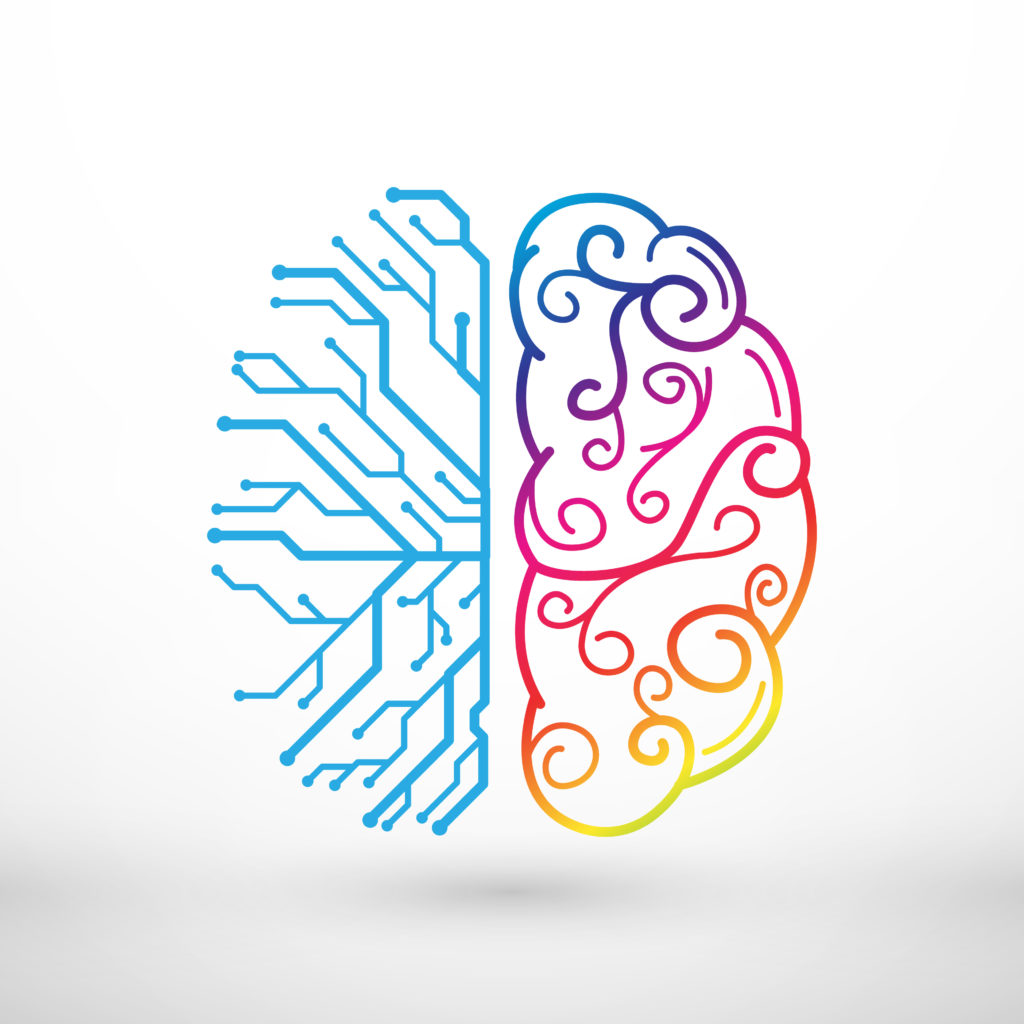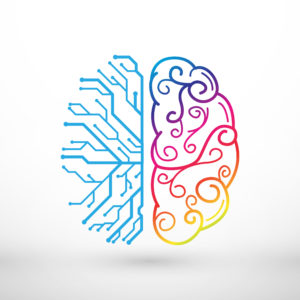My Twitter feed is suddenly awash with one of those “how does your brain?” work tests. (I should say, “tests.”)
If you look at the picture and see an angel, you’re right-brained.
If you see a helicopter, you’re left-brained.
This “test” has several important flaws.
Flaw #1: it’s not a helicopter or an angel — it’s obviously a dog.
Flaw #2: left-brain/right-brain is one of those zombie myths that just keeps coming back, no matter how many times we kill it.
Of all the myths in this field, this one puzzles me the most. Let me try to unpack my confusion.
Not True: The Brain
At the most basic level, this brain myth suffers from the flaw that it lacks any meaningful basis in neurobiological truth. In the world of theories about the brain, that’s a big flaw.
We can’t in any meaningful way find people who “use more of the right brain,” or “rely on left-brain thinking.”
If you’d like a detailed explanation of the wrongness here, I recommend Urban Myths about Learning and Education by de Bruyckere, Kirschner, and Hulshof.
If you’d rather click a link, check out this study. In the mild language of research, it concludes:
Our data are not consistent with a whole-brain phenotype of greater “left-brained” or greater “right-brained” network strength across individuals.
Translation: “people and brains just don’t operate that way. No seriously. They just don’t.”
Yes, yes: a few mental functions typically take place more on one side than another.
Back in grad school, we learned that 95% of right-handed people rely more on the left side of the brain for some reading functions. But 95% =/= 100%. And [checks notes] left-handed people do exist.
In any case, this finding doesn’t support the LB/RB claim — which is that some people rely more on these synapses, and others rely on those synapses.
Honestly: at the basic level of “how we use our brains,” we’re all “whole brained.” *
Not True: The Mind
Okay, so maybe the LB/RB claim isn’t exactly about “the brain” and more about “the mind.”
That is: some folks are more analytical (“left-brained”) and others are more creative (“right-brained”).
This version of the myth doesn’t use the word “brain” literally. (“Who knows precisely where those mental functions happen in the brain? We were just joshing, kind of poetically.”)
It simply argues that people think differently — and we can tidily divide them into two groups.
In other words, this version simply repeats the “learning styles” argument. These theories say we can divide students into distinct groups (visual/auditory/kinesthetic; or, creative/analytical; or, happy/grumpy/sleepy) and then teach them differently.
Of course, the LB/RB version of “learning styles” is no truer than the other versions; they all lack solid evidence to support them.
The Myers-Briggs Type Indicator sort of claims to measure this distinction (“thinking vs. feeling”). But here again, we just don’t have good evidence supporting this test. **
So, whether we’re talking about neuroscience or psychology, LB/RB ain’t true.
Beyond “True”
One of my favorite quotations is attributed to George Box:
All models are false; some models are useful.
In other words: psychologists can offer a good model for how — say — working memory works. That model is “useful” because it helps us teach better.
However, that model is a model. The staggering complexities of working memory itself defy reduction into a model.
So, maybe LB/RB isn’t true, but is useful?
Honestly, I just don’t see how it could be useful.
If the model were true (it’s not) and I could divide my students into left and right brained groups (I can’t), what would I then do differently?
Just maybe I could devise a “creative” lesson plan for one group and an “analytical” lesson plan for the other. (I’m not sure how, but I’m trying to make this work.)
Yet: doing so would be an enormous waste of time.
Neither group would learn any more than they would with the same lesson plan. And all that time I dumped into my dual planning can’t be used to create an effective lesson plan.
That sound you hear is George Box weeping.
TL;DR
Left-brain/right-brain claims are NEITHER true NOR useful.
Do not take teaching advice from people who make them.
* Yes, it’s true, some people have only one hemisphere. But that’s really rare, and not at all what the LB/RB myth rests upon.
** Some time ago, I tried quite earnestly to find evidence supporting the MBTI. To do so, I emailed the company that produces it asking for published research. They did not send me any research; they did, however, sign me up for their emails.
Nielsen, J. A., Zielinski, B. A., Ferguson, M. A., Lainhart, J. E., & Anderson, J. S. (2013). An evaluation of the left-brain vs. right-brain hypothesis with resting state functional connectivity magnetic resonance imaging. PloS one, 8(8), e71275.
Pashler, H., McDaniel, M., Rohrer, D., & Bjork, R. (2008). Learning styles: Concepts and evidence. Psychological science in the public interest, 9(3), 105-119.









 Today, I’ve found as straightforwardly practical a study as I’ve seen.
Today, I’ve found as straightforwardly practical a study as I’ve seen.










